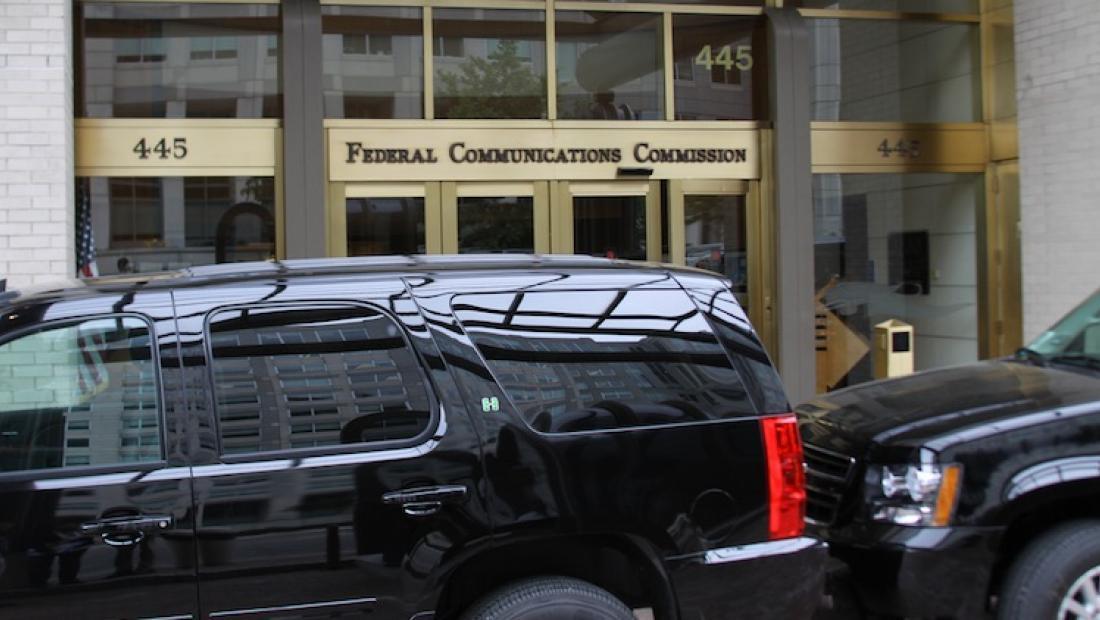FCC 3.5 GHZ Vote Gets Divided Reaction

The smarter way to stay on top of broadcasting and cable industry. Sign up below
You are now subscribed
Your newsletter sign-up was successful
D.C. was quick to weigh in Tuesday on the FCC's divided vote to propose changes in its rules for use of the 3.5 GHz band.
"Mobile Future strongly supports the Commission's action on enhancing the 3.5 GHz band," said Robert McDowell, former FCC commissioner and currently chief public policy adviser for Mobile Future. "By improving licensed options in this band, the FCC is strengthening America's leadership in mobile. The rulemaking proposes win-win-win flexibility for all participants in the mobile Internet space. For instance, longer license terms and adding the expectation of license renewals helps players of all sizes because capital markets need such certainty to fund the build-out of next-gen networks. Small and large service providers alike will benefit from the easier flow of capital which will result in more abundant availability of equipment and devices needed to fuel the 5G and IoT revolution."
“CTIA applauds the FCC for proposing common sense changes to the 3.5 GHz band in a way that will not delay new wireless service to Americans," said CTIA VP Scott Bergman. "Today’s action will unlock new investment, jobs and innovation and help the United States win the global race to 5G wireless.”
Public Knowledge was not nearly as sanguine.
“Rolling back the 3.5GHz licensing Order will undo years of the FCC’s work to promote both targeted rural wireless deployments using the 3.5 GHz band and efficient uses of limited spectrum. Today’s proposals, if ultimately adopted, would substantially limit innovative uses of the 3.5 GHz band, such as industrial Internet-of-Things deployments. Additionally, the Commission’s proposals to drastically expand the geographic size of the Priority Access Licenses and length of license terms will vastly increase the cost of licenses, preventing rural wireless broadband providers and new entrants from using the band to provide competitive, targeted wireless deployments in unserved and underserved rural communities.
The FCC asked about increasing license sizes to promote more interest in the band, but actually did not propose it, which is what helped Commissioner Mignon Clyburn concur rather than dissent. The vote was 4-1, with Commissioner Jessica Rosenworcel strongly dissenting, expressing similar reservations to those of Public Knowledge.
"Consumer advocates and rural broadband providers are concerned the FCC will rewrite the rules to make licenses affordable for only the largest mobile carriers and thereby deny spectrum access to thousands of other companies," said Michael Calabrese, director of the Wireless Future program at the New America Open TEchnology Institute. "America's future 5G ecosystem will be less robust and competitive if the FCC rigs the auction to benefit a single big carrier business model.
“OTI applauds Commissioner Clyburn for convincing her GOP colleagues not to pre-judge whether licensing areas should remain small or so large they are only affordable for the largest mobile carriers. OTI also agrees with Commissioner Rosenworcel that the FCC’s current, innovative rules are a policy that will create a far more robust and globally competitive 5G ecosystem, just as Wi-Fi has enriched America’s current 4G ecosystem.”
Charter, which was looking for larger licenses, but not too large, was hopeful that would be the ultimate conclusion when a final vote is taken.
“With the right licensing rules, Charter believes the 3.5 GHz band could be a key component of our wireless strategy and provide a cost effective solution for delivering fixed wireless broadband in rural areas," said the company. "We have already made significant investments in robust trials using this spectrum and look forward to working with the commission as it refines the rules hoping that any changes support the goals of promoting wireless competition, investment and quick deployment.”
“The 3.5 GHz band presents a great opportunity to make 150 MHz of spectrum available for flexible use, including for new 5G services," said Verizon SVP Will Johnson. "Verizon supports the FCC’s proposal for targeted changes to the 3.5 GHz band rules. These changes will preserve the current spectrum-sharing framework, promote investment and innovation, and unlock the full potential of this spectrum. It is important to consumers to bring this technology to market quickly, and we urge prompt action by the FCC on the proposed reforms.”
The smarter way to stay on top of broadcasting and cable industry. Sign up below
Contributing editor John Eggerton has been an editor and/or writer on media regulation, legislation and policy for over four decades, including covering the FCC, FTC, Congress, the major media trade associations, and the federal courts. In addition to Multichannel News and Broadcasting + Cable, his work has appeared in Radio World, TV Technology, TV Fax, This Week in Consumer Electronics, Variety and the Encyclopedia Britannica.

